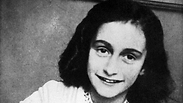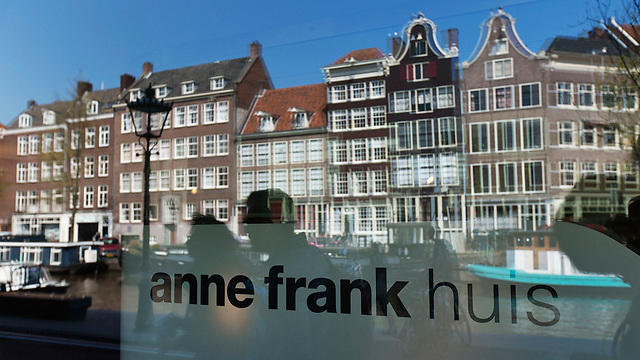
The play, "Anne", claims to be the first based on all three edits of the Jewish girl's diary, written while hiding from the Nazis with her family in a "Secret Annexe" in Amsterdam before she died in a concentration camp in 1945.
"We wanted to show the girl behind the symbol," artistic director Theu Boermans told AFP amid frantic preparations ahead of a royal premiere before the Dutch king and queen on Thursday.
"Everyone has their own image of Anne, everyone projects feelings onto Anne, and the girl herself disappears," he said.
"I tried to bring her back, the adolescent growing up, who feels a whole range of emotions," he said of the girl whose diary was rescued by a family friend after the war, then edited and published by her father, Otto.
Otto however edited much of the work out, mainly sections where Anne writes about her burgeoning sexuality or makes potentially disparaging comments, including about her father.
That version of the diary has been translated into over 60 languages and read by millions, but two others also exist and have become increasingly popular in recent years: the original and another edit, made by Anne when she decided she wanted to have the book published.
The dramatization also draws on short stories that Anne wrote during her two years in hiding, as well as family archives held by the Anne Frank Foundation in Basel, Switzerland, which has an often-fraught relationship with the Anne Frank House museum in Amsterdam.
Insightful teenager
The play tells not only the tragic story of a Jewish family trying to carry on with life while cooped up in a tiny space but also a young girl's journey towards becoming a woman.
"From being a young teenager, full of rage and superficial, in a way still trying to cope with her parents, she develops into someone with so many insights into other people's struggles and her own struggles," said Jessica Durlacher, who co-wrote the script.
The producers had a new theater built for the play, complete with revolving stage, in Amsterdam's port, the target of urban regeneration miles (kilometers) from the Anne Frank's House museum.
Each room of the cramped "Secret Annexe" and the family's business has been reproduced so the audience can follow the protagonists' movements.
"I didn't want to be hyper-realistic but to show what it's like for so many people to live in such a small space," said Boermans.
Combined with news archive projections, "the audience feels claustrophobic", Boermans said.
"Along with the toilet, her diary is the only place she can be alone."
Even the cast, all little-known actors, feels oppressed.
"Sometimes I think 'get me out of here', that I can't stand being with all these people anymore," said Chava voor in 't Holt, who plays Anne's eldest sister Margot.
"But you can't compare it to what they had to go through for two years."
Anne herself is played by Rosa da Silva, a fourth-year Amsterdam drama student from a Portuguese background.
"For the younger generation, the Second World War means Steven Spielberg films, and I wanted to get closer than that narrative," said Boermans.
Almost 70 years after her death aged 15 at the Bergen-Belsen concentration camp, "there are still reasons to tell her story, not least because of the recent rise in nationalist and xenophobic sentiments," he said.
Despite the 75-euro ($105) cost of a ticket, he hopes that the play will "find its audience."
From July, "Anne" can be seen in six languages with the help of "multilingual technology."
















